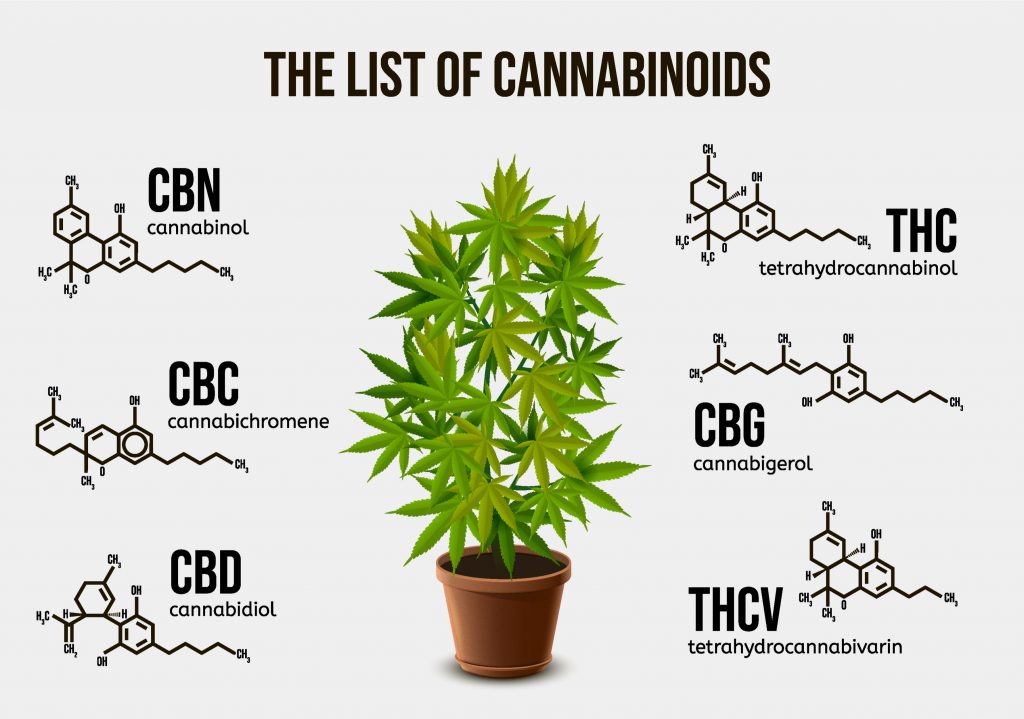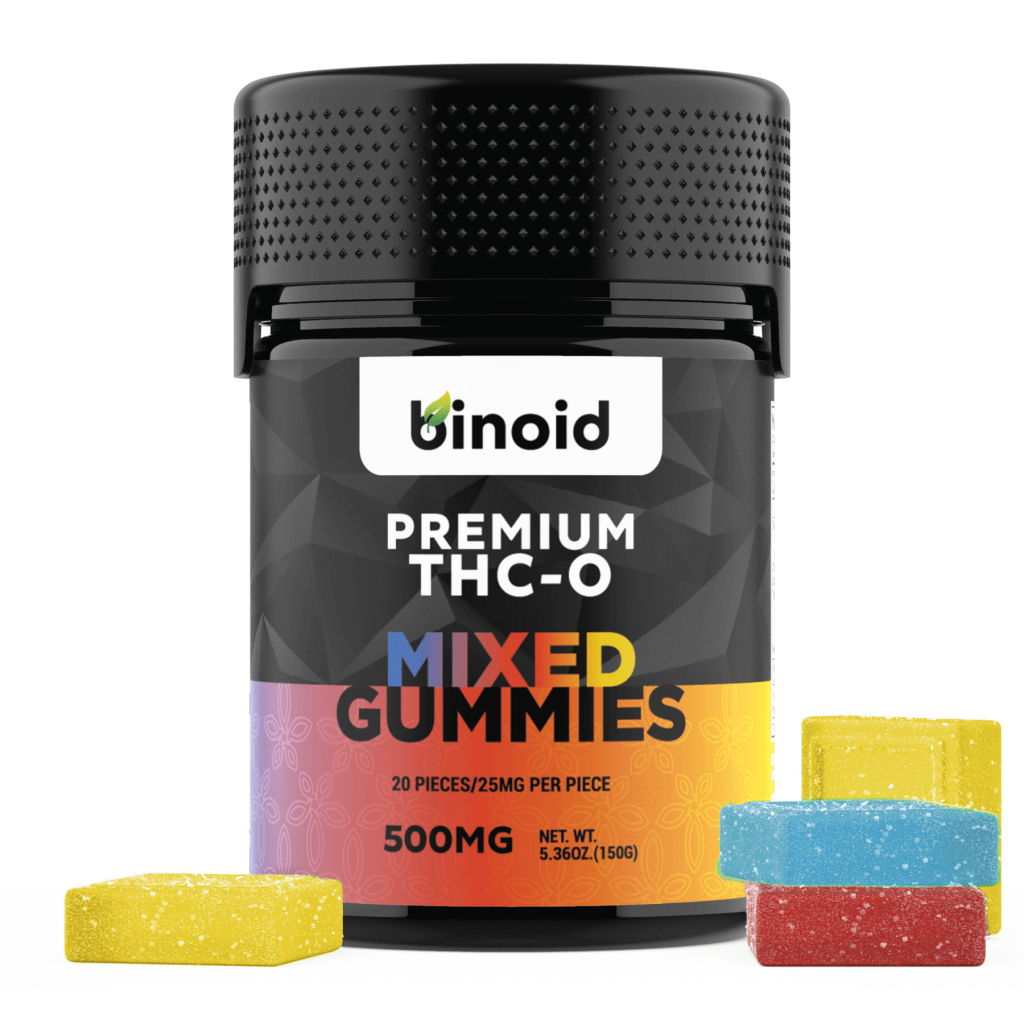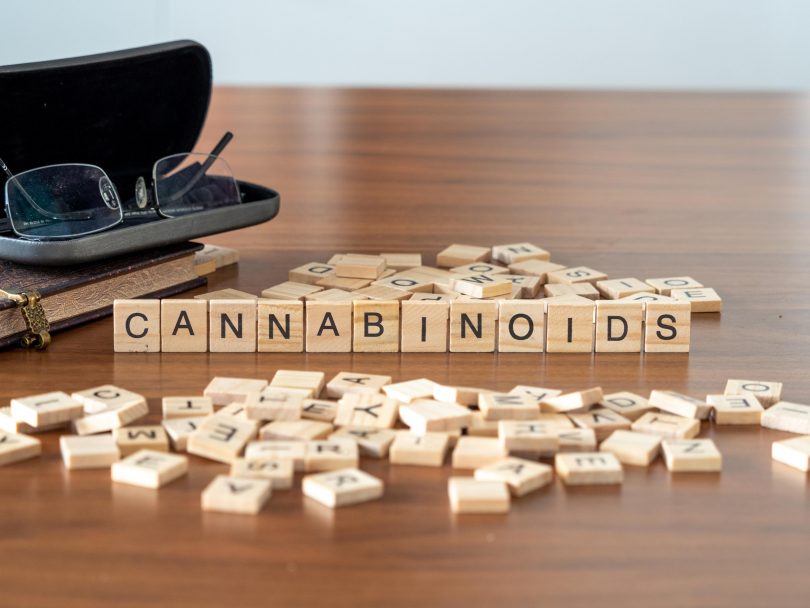There are a ton of new cannabis products coming out all the time now, some with more relevance and staying power than others. Which will really survive this stage and go into the next? It’s hard to say. Some cannabis discoveries have caught on better than others. Which cannabinoids will survive the current industry, any new decriminalization or legalizations that might occur, and prosper into the future? This still remains to be seen.
Is delta-8 one of the cannabis cannabinoids that will make it into the future? Of all the alternate cannabinoids on the market, delta-8 is the most popular, and most likely to make it big. We’re ahead of the game with tons of delta-8 THC products and deals for you to look into. But delta-8 isn’t alone in the game, other hemp-derived THC products, such as delta-10 THC, THCV, THCO, THC-P, HHC are also selling very well and might survive into the future.
Want to try them? Subscribe to the Delta 8 Weekly Newsletter for exclusive deals!
Cannabis cannabinoids
Everyone knows about delta-9 THC. This is the main psychoactive compound of the cannabis plant, and the part that makes a person feel euphoric. THC was first isolated in 1964 by Raphael Mechoulam, but it was first found by Roger Adams in the early 40’s, around the time that CBD was isolated. CBN was the first cannabinoid to be isolated, in an attempt to find the ‘intoxicating factor’ of cannabis, which it didn’t end up being. CBN was discovered by Thomas Easterfield at the end of the 1800’s.
Everyone also knows about CBD at this point, the other major cannabinoid of the cannabis plant, which is the primary cannabinoid of the low-THC hemp plants. Significantly less CBD is found in high-THC marijuana plants, and vice versa. CBD was discovered in 1940 by Roger Adams, although Alexander Todd discovered it at about the same time in the UK, making for dueling research and discoveries for several years.
The whole reason Roger Adams investigated cannabis at all, was at the behest of the US government. The US government, often through the military and CIA, has done all kinds of drug research and testing, from the Edgewood Arsenal Experiments, where THC-O-Acetate was given to military personnel, to MDMA tests during the Cold War era for use as psychological warfare. There are even various unconfirmed reports of unleashing chemicals like LSD in public places. That compounds like THC-O-Acetate and LSD were found on the streets at the time of such testing even indicates that street use might have been started by these organizations in an attempt to study the compounds further.

This, of course, is supposition on my part, but in the 1940’s, the government did sponsor research into cannabis, with a main factor being the isolation of the intoxicating agent. In so doing this, and in the follow-up research when THC was isolated, several different cannabinoids were found, including other delta THC’s, like delta-8, delta-7, and delta-6, some naturally occurring, and some entirely synthetic. Other compounds were found around this time including CBL, CBC, and HHC.
Most of what has been mentioned are cannabinoids, but what exists in the actual cannabis plant, before decarboxylation, oxidation, or any other chemical process that changes the chemical structure, are phytocannabinoids. THCA and CBDA are the precursor acids to CBD and THC, and a range of other cannabinoids. These cannabinoid acids also have tons of medical benefits, but are different from their cannabinoid counterparts. THCA, for example, is not psychoactive, and does not cause the same response as its decarboxylated version, delta-9 THC.
Research into the cannabis plant has turned up tons of naturally occurring cananbinoids like delta-8 THC, THCV, CBC, CBG, and 11-hydroxy-THC, what delta-9 becomes after being ingested. There are also a range of purely synthetic compounds that can’t be found in nature. These include delta-10 THC, delta-7 THC, THC-O-Acetate, and HU 580.
How popular are these alternate cannabis cannabinoids?
This is an interesting question, and one without a formal answer, as there isn’t much data out on buying patterns for these products. This might be partly because this is an unregulated market, and a relatively new one, where that kind of information has not been collected as of yet. The best indication for establishing interest, come from individual sales statistics, mentions and conversations online, and overall population know-how about these compounds. Different researchers might turn up different opinions, since even these metrics involve personal research methods, and subjective analysis.
If a person is to blindly believe the marketing hype of an industry, delta-8 is about the biggest thing out there. But marketing campaigns are rarely real life, and looking at real metrics, (and over a period of time), is the better way of establishing where something actually fits into the grand scheme. Maybe delta-8 has raised in popularity, but if it has, will this be a passing fancy, to disappear in a year from now? And how big is this popularity to begin with?
It’s always good to remember that while it’s great to take the plant apart and find new ways to access different aspects of it, we never lose the original cannabis plant itself, which has been doing just fine keeping people happy for millennia. Whether these compounds really become stable market representatives or not, will likely do little to effect a worldwide cannabis industry that has propelled itself along, even under worldwide prohibition. This means, regardless of which currently out cannabis cannabinoids make it to the future, we’ll always have our standby.
BEST SELLER: THC-O GUMMIES

Sales statistics – there aren’t any
When it comes to sales, I don’t see any massive breakthrough reports about any of these compounds. Delta-8 THC gets the most press, but mainly only within the world of weed itself, and as a niche part of the cannabis market. For the most part, even delta-8 goes unnoticed in terms of sales statistics. Even in the articles where delta-8 is mentioned as a growing fad, none of them can offer any backup for this. In fact, an article like this one in Fortune Magazine, show this well. The article refers to delta-8 as the “fastest-growing segment of the market for hemp chemicals for roughly the last year.”
This makes it sound pretty big, right? But then it goes on to state that this happened only after “wholesale CBD prices plummeted amid oversupply and other issues.” This merely implies that with CBD leveling off (or possibly losing value), that delta-8 has taken its place as the top hemp chemical product. Even the comparison is weak, and shows a changing fad, from CBD to delta-8, with the inability to keep that trajectory long-term. Considering delta-8 isn’t likely to produce anything substantially new for users, the expectation of it getting to the point where it could threaten the longstanding regular cannabis industry, is sort of short-sighted.
One of the biggest indicators, which the authors of the Fortune article seemed to gloss over, is that if cannabis cannabinoids like delta-8 THC follow in the footsteps of CBD, they’re not going to make it into the future, especially if they don’t hit the same volume before leveling off. That CBD has lost momentum, is an indication that delta-8 is just a passing fancy too. 2021 numbers for CBD sales (when released) might help us understand how cannabis cannabinoids like delta-8 THC might fair in the future, better.
Mentions and conversations
Without sales statistics, one of the other ways to see how big something is, is simply in how much its mentioned and talked about. The internet is a huge place, so finding mentions of a subject is never that hard. But the questions become, how often is it mentioned, where is it mentioned, and what is being said? When it comes to delta-8 THC, the most popular of the alternate cannabis compounds, there are plenty of mentions online. Many of these mentions come from large scale publications that are non-cannabis related. Most mentions are of the fear variety, talking about the possible detriments, or mentioning new regulatory measures to keep it out. As an untaxed item with any amount of popularity, this makes sense. Delta-8 THC is undesirable for governments that can’t tax it.
But the general conversation is limited. Apart from what seem like pre-emptive fear-marketing campaigns, people aren’t talking about it all over the place. There aren’t a huge number of questions being asked, or reviews being given. Even a site like reddit, has some, but not too much. When I changed my search results to just the last month, only one reddit mention came up, and as a news article about issued warnings. A search for ‘Acapulco Gold’ turned up several mentions on Reddit just from the last month. And that says a lot. Since delta-8 proposes an issue to the government as an unregulated and untaxed product, the issues of legality and regulation are among the bigger talking points, when it does show up on-line.
Realistically, if the stuff is sitting on store shelves, at least some people are bound to buy it. Most of what’s written, however, seems like a reaction to the possibility of an out-of-control market, more than the reaction to an actually out-of-control market. This is also backed up by very few arrests being made, or government intervention beyond these articles.

Do people know about it?
I find this question to be the most interesting one. It’s possible to get the wrong idea by something being seen online. It’s easy to forget how big the internet is, and how much is necessary to show real engagement with an industry or product. Marketers can fill internet pages with content that isn’t backed up by anything, and governments can put out campaigns in an effort to stop something before it starts. Neither has to indicate mass appeal, though they can be a factor in it. So, one of the best ways of assessing whether something has an influence, is to see if its actively influencing people. And this is where I see the biggest issue.
The vast majority of people have no idea what delta-8 THC is. Had I not been a writer in the cannabis industry, I probably wouldn’t know about it either. I know a lot of weed smokers, and somehow, not a single one has heard of this compound. First off, it’s only a US product that hasn’t gained popularity anywhere else, and that means we’re only looking at a US audience. On top of that, cannabis – as stated – is a stable industry, and its been there for a while. Even now it exists as bigger black markets than legal ones, which means, we already have a version we can use. It’s not like delta-8 is the answer to not being able to get any weed at all. We can all get it, and this will always be a roadblock to delta-8 sales.
Having said all this, I will point out one countering factor. Governments are making specific legislation to rule out delta-8 THC, even with other legalizations. This could indicate that sales are high enough to cause worry and necessitate these laws. But, it could also be a reactionary measure meant to stifle a possible industry, whether it would actually meet the potential indicated, or not. That it would be singled out by governments does say something for its existence, and ability for at least some popularity. However, even this doesn’t indicate that it’ll stick around.
Cannabinoids Future – Conclusion
None of this article really answers the question of what can be expected for all cannabis cannabinoids in the future. However, the most useful point comes from the fact that delta-8 seems to be following in the footsteps of CBD, which itself has been leveling off after a few years of being the golden product. If this is any indication, none of these products will last it out, not even delta-8 THC. In the end, there realistically isn’t a great reason for it. Does this mean it doesn’t have good or alternate benefits? No, it doesn’t mean that. But it’s also quite possible that the slightly lesser high and clearer head are more important for medical patients, and might not be as desirable by those looking for a full effect. On top of that, reports of causing less anxiety have never been totally confirmed meaning it might not provide these effects the way we read about them.
Though this doesn’t mean something can’t catch on further, my best bet is that none of the newly released, bottom-feeding (let’s be honest) attempts to capture a greater part of the industry, will work. Alternate cannabis cannabinoids might be fun to try, but if they don’t provide a better answer, and if they come at a higher price, they’re likely to be dropped fast and never see the future. Luckily for us though, we’ll always have our regular weed. And if the last few years is any indication, our black markets for that aren’t going anywhere.
Welcome all! You’ve arrived at CBDtesters.co, the #1 online location for everything you want to know about cannabis and psychedelics-related news worldwide. Check us out daily to stay aware of the constantly-in-flux world of legal drugs and industrial hemp, and subscribe to the The Delta 8 Weekly Newsletter, so you always hear every story first.
Disclaimer: Hi, I’m a researcher and writer. I’m not a doctor, lawyer, or businessperson. All information in my articles is sourced and referenced, and all opinions stated are mine. I am not giving anyone advise, and though I am more than happy to discuss topics, should someone have a further question or concern, they should seek guidance from a relevant professional.









